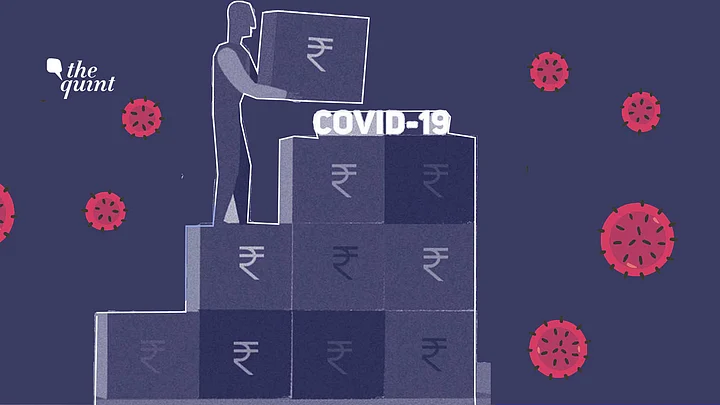In the case Gaurav Kumar Bansal v. Union of India & Ors., W.P.(C) No. 539/2021 before the Supreme Court, the petitioner has made essentially a simple plea: direct the central government to pay an ex-gratia compensation of Rs. 4 lakh to the families of all those who have died of the COVID-19 virus.
The central government has filed a long affidavit requesting the apex court to reject the relief sought.
COVID Relief Applicable Under Disaster Management Act, 2005
It is not disputed that section 12(iii) of the Disaster Management Act, 2005 (DMA 2005) mandates the National Authority in the central government to frame guidelines for providing gratuitous relief in case of deaths caused by specified disasters.
It is also not disputed that the guidelines framed in 2015 and currently applicable provide for an ‘ex-gratia payment to families of deceased persons’ of ‘Rs. 4.00 lakh per deceased person’.
COVID-19 is not one of the 12 specified disasters in the DMA 2005.
However, it is not disputed that the central government had interpreted this to be a disaster covered under DMA 2005 and the entire management of COVID-19 since March 2020 has been carried out using the authority and powers under the DMA-05. The central government has not disputed that the DMA 2005 and the 2015 Guidelines are applicable for COVID-19.
The central government’s affidavit filed in the Supreme Court describes at great length all that the government has done for the management of COVID-19. It has, however, rejected the requested relief basically on four grounds.
Then, Why has the Govt Rejected the Request for Relief?
- The central government has taken numerous financial and non-financial actions to contain and manage COVID-19, including the rollout of a humungous vaccination programme.
- COVID-19 is qualitatively a different disaster from the other 12 specified disasters in that it is a long drawn out epidemic, whereas the specified disasters are essentially one-shot/ short term types of disasters. This requires the compensation guidelines to be interpreted differently.
- Payment of ex-gratia compensation is ‘beyond the fiscal affordability’ of states.
- The competence to decide the scale of ex-gratia compensation is that of the National Authority and the Court ‘should not substitute its own judgment`’ in the matter.
Why the Govt’s Arguments Don’t Hold Water
Two of the arguments are proforma- numerous financial and non-financial actions taken, and that the national authority is competent- and unlikely to hold water.
The argument to distinguish COVID-19 from other disasters is novel, but disingenuous. Droughts - the original natural disaster, over which the whole edifice of disaster management has been built in India - run for more than one year many times. Is fiscal non-affordability a good ground?
India has witnessed close to 4 lakh officially acknowledged COVID-19 deaths so far. A compensation of Rs. 4 lakh to the families of 4 lakh deceased persons would cost the government an amount of Rs. 16,000 crore. If we estimate the final count of COVID-19 deaths, taking into account future waves and unreported/unacknowledged deaths, at 1 million, the compensation amount would rise to Rs. 40,000 crore. Is this cost fiscally unaffordable to the central and state governments?
Does the Government Have Enough Funds?
States aggregated expenditures on disasters averaged about Rs. 21,000 crore in an eight-year period (2011-2019). India’s health and well-being budget, including Jal Jeevan Mission, for the year 2021-22 is Rs. 2,23,846 crore. This budget includes a provision of Rs. 35,000 crore for vaccination alone. The government purchased only wheat worth Rs. 75,000 crore at MSP prices in 2020-21. The budgetary provision for MGNREGA exceeds Rs. 60,000 crore. Thus, Rs.16,000 crore is not unaffordable in this context.
The budget provision for disaster management in the 2021-22 budget is Rs. 6,100 crore for the National Disaster Response Fund (NDRF) and Rs. 12,400 crore for assistance to State Disaster Relief Funds (SDRF). This covers the entire gamut of expenditure on disaster-related expenditures.
Certainly, Rs. 16,000 crore cannot be paid out of this budgetary provision. How do you pay the ex-gratia then?
Here’s How it can Fund This Expenditure
There are three principal ways to fund the expenditure on COVID-19 ex-gratia compensation, in case the Court directs or the government decides to pay.
- The government can levy an additional cess on GST and/or on goods for raising requisite funds for NDRF which is an accepted mechanism for topping up the NDRF.
- The government can make additional budgetary provisions for this relief on the lines of budgetary provision made for vaccinations in the next supplementary budget.
- The central and state governments can agree to divide the responsibility and source requisite funds by reallocating expenditures from other budgeted expenditures.
The government can, as it has claimed in the affidavit, legally prescribe a different scale of ex-gratia compensation for COVID-19 by amending the 2015 Guidelines.
The argument of fiscal unaffordability is untenable. It would be best if the central government seizes the initiative and announces compensation at Rs. 4 lakh per deceased, without awaiting court directions, as was done in the case of vaccination programmes.
(This is an opinion piece and the views expressed above are the author’s own. The Quint neither endorses nor is responsible for the same)
